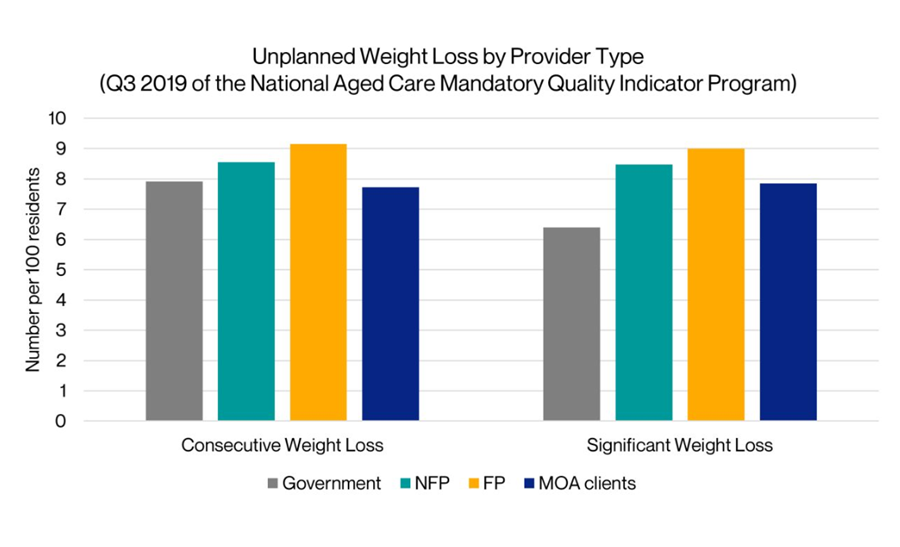Participation in the National Aged Care Mandatory Quality Indicator Program (NACMQIP) became mandatory for all providers of residential aged care on 1 July 2019, with additional measures of falls and medication management also introduced in July 2021. To assist in this process, the Department of Health allows providers to collect and submit the required data via a commercial benchmarking service, such as MOA.
The support that we provide includes:
- Timely reminders throughout the submission month
- Proactive data quality checks. We contact your home as we identify potential data anomalies
- A benchmarked submission report for each home
- Educational webinars and access to instant support
- The automatic transmission of NACMQIP data submitted through our guided online collected tool to the MyAgedCare portal
In the lead up to a recent submission, MOA’s data quality and validity checks flagged close to 600 services for potentially anomalous data points. By directly contacting these services to review the flags, it was found that close to 150 services needed to update their data due to data entry errors and misinterpretation of the program’s requirements. By submission, these services were able to report accurately, with MOA successfully submitting NACMQIP data to My Aged Care for close to 800 residential aged care services.
Please contact us if you would like to discuss the benefits of partnering with MOA for NACMQIP support and your options.
MOA homes out-perform national averages
MOA Benchmarking clients outperformed the national averages for unplanned weight loss based on data from the first submission of the NACMQIP. Our partner providers (a mix of for-profit and not-for-profit homes) performed, on average, 8.4% and 14.1% better for unplanned weight loss than other not-for-profit homes and for-profit homes respectively. The difference between well- and poorly-performing homes has little to do with profit status, with Royal Commission reporting showing few clinically significant differences between service types in outcomes for the NACMQIP program.

MOA clients also performed better for consecutive weight loss than Government homes but worse for significant weight loss; however, given the small number of government homes, those results should be interpreted with caution.


